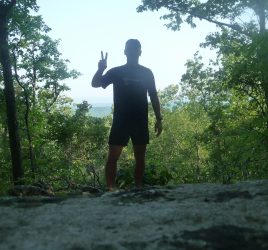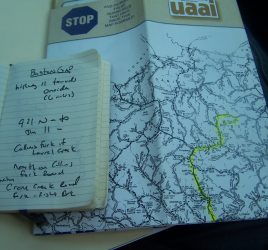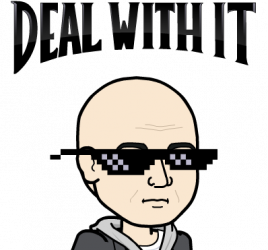In Rebuttal to Malcolm Gladwell
“The borderlands — as this region was known — were remote and lawless territories that had been fought over for hundreds of years…
And when they immigrated to North America, they moved into the American interior, to remote, lawless, rocky, and marginally fertile places like Harlan that allowed them to reproduce in the New World the culture of honor they had created in the Old World.” — “Harlan, Kentucky,” Malcolm Gladwell in Outliers.
At the moment, this story seems to be about an alcoholic and his redemption. That is just a momentary issue. This is really a story that millions of people who live in the Appalachian region have lived. It’s a story that you can’t quite tell in one direct narrative because there isn’t a beginning, middle, and end in the way that you think of them.
My journey would lead me down a rabbit hole and into my family’s past, one that weaves through the early history of America. This is the story of my family, the Bakers, who came to America in 1604 from northern England. They provided guns to the colonists during the Revolutionary War. They foraged and trapped with Daniel Boone. They mined the salt mines of southern Kentucky. They battled the Rebels in the Civil War. They even battled the National Guard, sent to bring order to the near 80-year feud between the Bakers and the Whites.
Eventually, my family escaped to Indiana before scattering across the country. In its wake, they left a city, a county, and a region in the direst of straits. Manchester and much of southern Kentucky continue to have some of the highest poverty rates in the country.
What people want to discuss, though, is the feuds. They are drawn to the caricatures of long-bearded men with shotguns engaged in Main Street shootouts while fighting over triple-x marked bottles of moonshine. When people look back upon the region, the long shadow of the infamous feuds stretch across the landscape, inviting strangers to give a significance to these brief moments in time while ignoring the more complex relationships between the ever-expanding American economy as it weaved together with the sustainable local economies.
And so with my family, I saw its same complex history washed away in the bright lights of feud stories. This isn’t resigned to the past. The most recent example came by way of The New Yorker writer and author Malcolm Gladwell’s book, Outliers, which used my family’s history as an example of how a culture passes down violent tendencies.
Washed away was the acknowledgement that the families who feuded in Manchester were well-to-do, elite families fighting over an increasingly small economic pie brought on by the collapse of the salt mining prices, a crumbling transportation infrastructure, and national competition for goods. Gone was the discussion of lawlessness that came about when the Courts, near bankrupted, lost the ability to function in a timely manner. Erased was mention of speculators from outside the area pushing the sustainable agriculture economy to the side while gobbling up farmland for salt and timber.
Instead, Gladwell, as have so many others, paints a picture of ignorant, angry, uneducated mountain folks who are divorced from the rest of America. As I read about my once proud family, I saw in them a portrait of myself. As my family’s story came into view, I began to view the Appalachian story. I felt connected the people who came before, and I came to understand what it means to live with the unspoken weight of history pressing against you.
This is the story of the long, slow pressure that settled across the Appalachian region and squeezes out your breath without you knowing that you’re suffocating. This is the story of growing up Appalachian without realizing what that means.
My story is a memoir in the loosest sense of the word. This is my Appalachian story, not the Appalachian story. Like so many other stories from this region, though, this is the story of how Appalachia ripples through modern America.
I’d been swirling towards the bottom of the drain, sucked inevitably down towards a bottom I couldn’t see and yet knew was there. I was trapped, held down by an idea I couldn’t quite place. Every movement I made to hold back the tidal forces was inevitably met with a greater force pulling me into the abyss.




1604? Hmmm…Jamestown was not until 1607. Did your folk somehow get out ahead of everybody else? Just curious….
You’re correct. 1604 was the year my relative was born. They arrived in 1625.